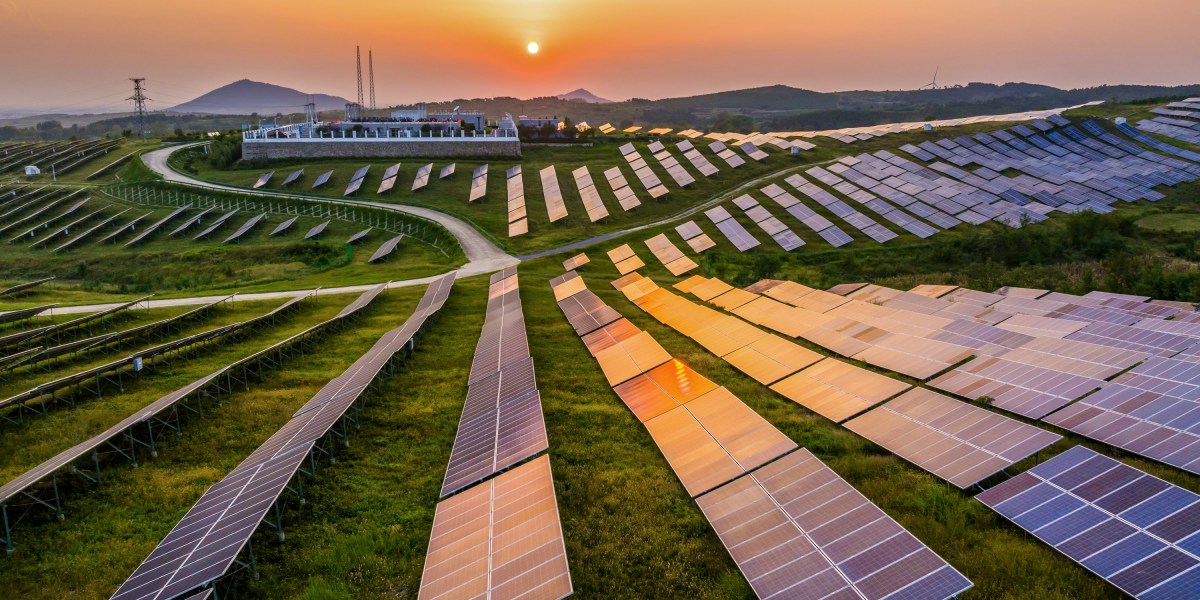Three takeaways about the state of Chinese tech in the US
This story first appeared in China Report, MIT Technology Review’s newsletter about technology in China. Sign up to receive it in your inbox every Tuesday.
I’ve wanted to learn more about the world of solar panels ever since I realized just how dominant Chinese companies have become in this field. Although much of the technology involved was invented in the US, today about 80% of the world’s solar manufacturing takes place in China. For some parts of the process, it’s responsible for even more: 97% of wafer manufacturing, for example.
So I jumped at the opportunity to interview Shawn Qu, the founder and chairman of Canadian Solar, one of the largest and longest-standing solar manufacturing companies in the world, last week.
Qu’s company provides a useful lens on wider efforts by the US to reshape the global solar supply chain and bring more of it back to American shores. Although most of its production is still in China and Southeast Asia, it’s now building two factories in the US, spurred on by incentives in the Inflation Reduction Act. You can read my story here.
I met Qu in Cambridge, Massachusetts, where he was attending the Harvard College China Forum, a two-day annual conference that often draws a fair number of Chinese entrepreneurs. I also attended, hoping to meet representatives of Chinese tech companies there.
At the conference, I noticed three interesting things.
One, there was a glaring absence of Chinese consumer tech companies. With the exception of one US-based manager from TikTok, I didn’t see anyone from Alibaba, Baidu, Tencent, or ByteDance.
These companies, with their large influence on Chinese people’s everyday lives, used to be the stars of discussions around China’s tech sector. If you had come to the Harvard conference before covid-19, you would have met plenty of people representing them, as well as the venture capitalists that funded their successes. You can get a sense just by reading past speaker lists: executives from Xiaomi, Ant Financial, Sogou, Sequoia China, and Hillhouse Capital. These are the equivalents of Mark Zuckerberg and Peter Thiel in China’s tech world.
But these companies have become much more low profile since then, for a couple of main reasons. First, they underwent a harsh domestic crackdown after the government decided to tame them. (I recently talked to Angela Zhang, a law professor studying Chinese tech regulations, to understand these crackdowns.) And second, they have become the subject of national security scrutiny in the US, making it politically unwise for them to engage too much on the public stage here.
The second thing I noticed at the conference is what stood in their place: a batch of new Chinese companies, mostly in climate tech. William Li, the CEO of China’s EV startup NIO, was one of the most popular guest speakers during the conference’s opening ceremony this year. There were at least three solar panel companies present—two (JA Solar and Canadian Solar) among the top-tier manufacturers in the world, and a third that sells solar panels to Latin America. There were also many academics, investors, and even influencers working in the field of electric vehicles and other electrified transportation methods.
It’s clear that amid the increasingly urgent task of addressing climate change, China’s climate technology companies have become the new stars of the show. And they are very much willing to appear on the global stage, both bragging about their technological lead and seeking new markets.
“The Chinese entrepreneurs are very eager,” says Jinhua Zhao, a professor studying urban transportation at MIT, who also spoke on one of the panels at the conference. “They want to come out. I think the Chinese government side also started to send signals, inviting foreign leadership and financial industries to visit China. I see a lot of gestures.”
The problem, however, is they are also becoming subject to a lot of political animosity in the US. The Biden administration has started an investigation into Chinese-made cars, mostly electric vehicles; Chinese battery companies have been navigating a minefield of politicians’ resistance to their setting up plants in North America; and Chinese solar panel companies have been subject to sky-high tariffs.
Back in the mid-2010s, when Chinese consumer tech companies emerged onto the global stage, the US and China had a warm relationship, creating a welcoming environment. Unfortunately, that’s not something climate tech companies can enjoy today. Even though climate change is a global issue that requires countries to collaborate, political tensions stand in the way when companies and investors on opposite sides try to work together.
On that note, the last thing I noticed at the conference is a rising geopolitical force in tech: the Middle East. A few speakers at the conference are working in Saudi Arabia and the United Arab Emirates, and they represent other deep-pocketed players who are betting on technologies like EVs and AI in both the United States and China.
But can they navigate the tensions and benefit from the technological advantages on both sides? It’ll be interesting to watch how that unfolds.
What do you think of the role of the Middle East in the future of climate technologies? Let me know your thoughts at [email protected].
Now read the rest of China Report
Catch up with China
1. A batch of documents mistakenly unsealed by a Pennsylvania court reveals the origin story of TikTok’s parent company, ByteDance. Who knew it started out as a real estate venture? (New York Times $)
2. Vladimir Potanin, Russia’s richest man, said he would move some of his copper smelting factories to China to reduce the impact of Western sanctions, which block Russian companies from using international payment systems. (Financial Times $)
3. Chinese universities have found a way to circumvent the US export ban on high-end Nvidia chips: by buying resold server products made by Dell, Super Micro Computer, and Taiwan’s Gigabyte Technology. (Reuters $)
4. TikTok is testing “TikTok Notes,” a rival product to Instagram, in Australia and Canada. (The Verge)
5. Since there’s no route for personal bankruptcy in China, those who are unable to pay their debts are being penalized in novel ways: they can’t take high-speed trains, fly on planes, stay in nice hotels, or buy expensive insurance policies. (Wall Street Journal $)
6. The hunt for the origins of covid-19 has stalled in China, as Chinese politicians worry about being blamed for the findings. (Associated Press)
7. Because of pressure from the US government, Mexico will not hand out tax cuts and other incentives to Chinese EV companies. (Reuters $)
Lost in translation
Until last year, it was normal for Chinese hotels to require facial recognition to check guests in, but the city of Shanghai is now turning against the practice, according to the Chinese publication 21st Century Business Herald. The police bureau of Shanghai recently published a notice that says “scanning faces” is required only if guests don’t have any identity documents. Otherwise, they have the right to refuse it. Most hotel chains in Shanghai, and some in other cities, have updated their policies in response.
China has a national facial recognition database tied to the government ID system, and businesses such as hotels can access it to verify customers’ identities. However, Chinese people are increasingly pushing back on the necessity of facial recognition in scenarios like this, and questioning whether hotels are handling such sensitive biometric data properly.
One more thing
The latest queer icon in Asia is Nymphia Wind, the drag persona of a 28-year-old Taiwanese-American named Leo Tsao, who just won the latest season of RuPaul’s Drag Race. Fully embracing the color yellow as part of her identity, Nymphia Wind is also called the “Banana Buddha” by her fans. She’s hosting shows in Taoist temples in Taiwan, attracting audiences old and young.




